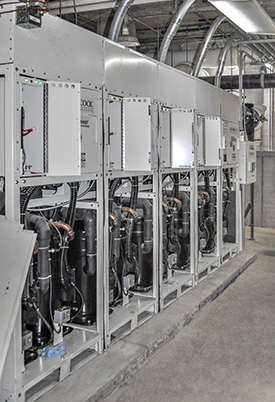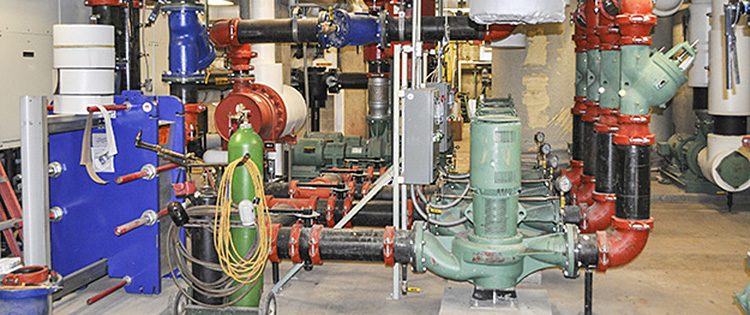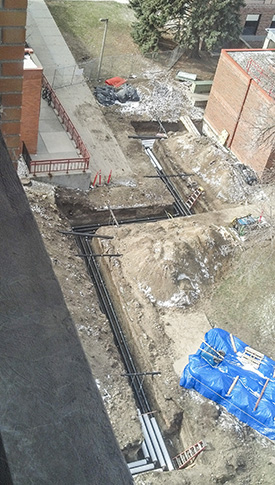The Leon Johnson Hall (LJH) Energy Upgrade Project for Montana State University showcased Tate Management’s ability to coordinate a complicated scope of work within an eight story, fully-occupied research facility. This retrofit provides significant ongoing energy savings, enhances facility comfort and safety, and positions Montana State University for even greater energy efficiencies in the future. Funded in part by the American Recovery Act, the project included:
- Asbestos abatement of ceiling tiles and exhaust ducts servicing fume hoods in all building laboratories.
- Upgraded the building exhaust system for laboratory fume hoods.
- Replaced the heating and cooling systems.
- Provided a district energy plant capable of expansion to nearby buildings, including the new Jake Jabs College of Business.
- Installed pipe from LJH to Tietz Hall to provide cooling from the new energy plant.
- Replaced fan coil units in all LJH offices and laboratories.
Leon Johnson Hall, an eight-story research facility built in 1976, holds offices and laboratories for Plant Sciences and Plant Pathology, Land Resources and Environmental Sciences, Cell Biology and Neuroscience, Earth Sciences, Ecology, and the Thermal Biology Institute. It also houses the Center for Native Health Partnerships and is headquarters for the WWAMI (Washington, Wyoming, Alaska, Montana, Idaho) Medical Program.
 Coordination
and Communication
Coordination
and Communication
The operating, occupied research facility was fully operational during the energy upgrade. Frequent, proactive communication with department heads and building occupants was critical to successfully schedule work for least impact on their research. TMI ensured that schedules with detail of planned work were updated and posted weekly, supported with daily building walks to talk with occupants, introduce them to contractors, and answer any questions.
We Make It Personal
When it comes to coordinating project details, Tate Management is committed to always being a trusted source and an advocate for not only the owner, but for all parties involved in the project. We use our view of the big picture to find the best-fit solution to keep the contractor working and on schedule, while minimizing disruption to others. In a building with eight different departments, we cataloged who was in each space and made a point to get know each and every one of them. This resulted in creating a project schedule that worked for everyone.


